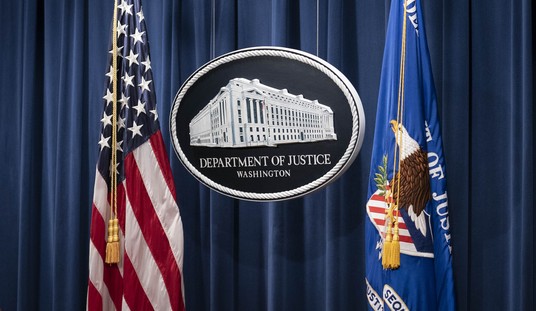WASHINGTON — For the second time since taking office, President Trump certified to Congress that Iran is in compliance with the P5+1 nuclear deal — with the caveat that the administration intends to work with allies to strengthen the agreement.
The administration is required to deliver quarterly reports on the Joint Comprehensive Plan of Action, and a senior administration official told reporters on a White House call Monday evening that Iran was “unquestionably in default of the spirit of the JCPOA” yet in compliance with the nuclear terms.
The official criticized Tehran for a number of faults including support of terrorism that were not included in the nuclear deal that, comprehensively, keep Iran “one of the most dangerous threats” and “severely undermine the intent of the JCPOA.” The Obama administration was accused of overlooking “broader malign behaviors,” and the official said the Trump administration “intends to employ strategy that will address the totality of malign behavior” from the Islamic Republic.
A second administration official insisted that the agreement was being “inadequately enforced” and said the White House would be “taking steps to interpret the agreement more forcefully” while “trying to contain the threats” posed by Iran.
A third senior administration official said there would be a period of “working with allies to address JCPOA’s flaws, of which there are many,” including looking at how restrictions on Iran’s nuclear development activities sunset over time and working with allies “to build a case of serious flaws in the agreement while also looking for ways to more strictly enforce the deal.”
Asked what steps the administration could take since they were certifying Iran’s compliance with the deal, an official said that the White House would “take every opportunity we can to identify areas of ambiguity” while facing Iran’s “well-established strategy of getting away with as much as they can get away with.”
Pressed on whether the administration views Iran as a legitimate interlocutor or if they want to be dealing with a different regime, the first official replied, “What we’re focused on right now is trying to see a change in the behavior of the Iranian regime.” Asked again whether the administration wants to see regime change, the official said, “We’re looking for a change in the regime’s behavior.”
Asked if President Trump, who said on the campaign trail that he’d “rip up” the “worst deal ever,” felt pressure from allies to stay in deal, one official responded that the president “certainly made clear all along his desire to fix great flaws in the deal,” but the policy is “still under review.”
White House press secretary Sean Spicer told reporters Monday that Trump “has been very consistent with the fact that he thought it was a bad deal.”
In a letter last week, Sens. Marco Rubio (R-Fla.), Tom Cotton (R-Ark.), David Perdue (R-Ga.) and Ted Cruz (R-Texas) urged Secretary of State Rex Tillerson to decline the certification, arguing that “U.S. interests would be best served by a sober accounting of Iran’s JCPOA violations as well as the regime’s aggressive and destabilizing behavior.”
They listed a few unclassified examples of violations, including that “Iran is currently operating more advanced nuclear centrifuges than it is permitted under the JCPOA, maintains more advanced centrifuges than required for its permitted enrichment activities, and has announced the capability to initiate mass production of more advanced centrifuges,” as well as exceeding caps for heavy water used in plutonium production. They pointed to German intelligence findings in 2015 and 2016 that Iran was continuing efforts to acquire nuclear and missile technology outside of the deal. And they noted that Iran denies International Atomic Energy Agency inspectors access to nuclear research and military facilities: “As a result of this wholly inadequate arrangement, the IAEA has not—and likely never will—verify the full scope of Iranian nuclear-weapons know-how.”
“We urge you to deliver to Congress a clear accounting of Iran’s noncompliance with the JCPOA,” the senators wrote. “In addition, we request a description of strong measures the administration plans to take to respond to Iran’s violations.”
On CNN Sunday, Iranian Foreign Minister Javad Zarif charged that “the United States has failed to implement its part of the bargain.”
“For instance, when the White House made an announcement a couple of days ago that President Trump used his presence in Hamburg during the G20 meeting, in order to dissuade leaders from other countries to engage in business with Iran. That is violation of not the spirit but of the letter of the JCPOA, of the nuclear deal,” Zarif said. “And I believe the United States needs to bring itself into compliance with its party of the obligation under the deal. Iran has been complying; it has been verified the IAEA.”
“…We know where the terrorists are coming from. We know those who attacked the World Trade Center, where citizens of which countries in the region? I can tell you none of them came from Iran. None of the people who engaged in acts of terrorism since 2001 came from Iran. Most of them came from U.S. allies.”
Zarif said that “a major violation, or what in the terms of the nuclear deal is called significant nonperformance” is committed by the U.S., “then Iran has other options available, including withdrawing from the deal.”









Join the conversation as a VIP Member